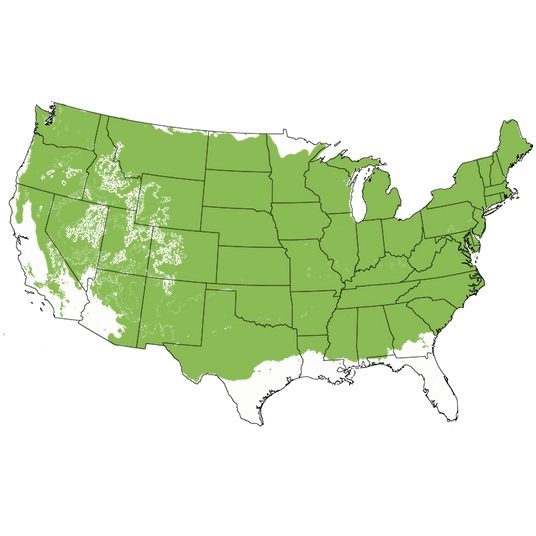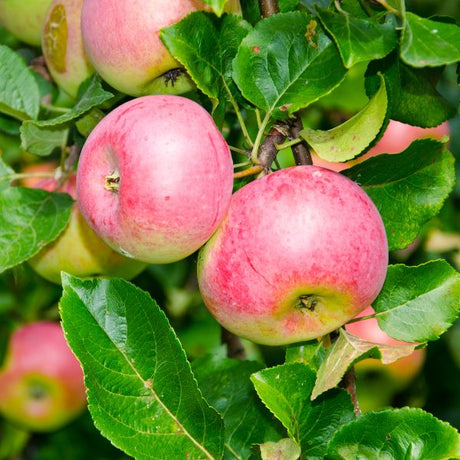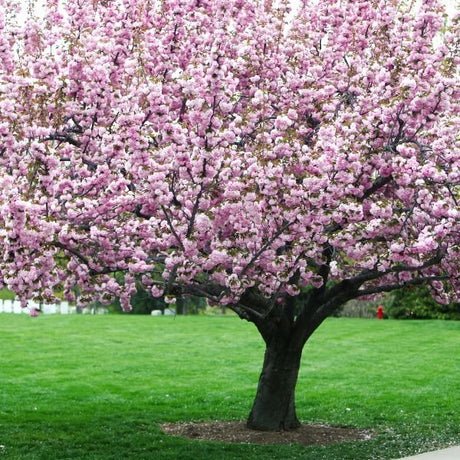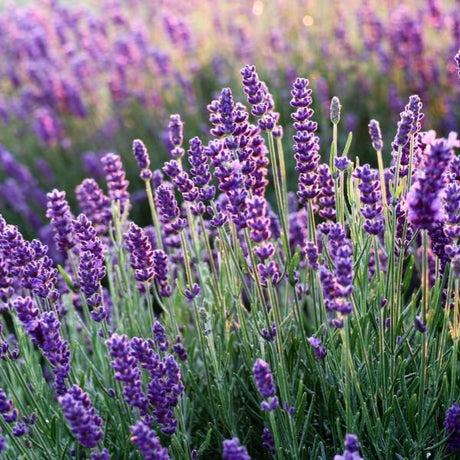Comet Hops Vine
Humulus lupulus 'Comet'
- Stay Protected with Plant Sentry ™
Comet Hops Vine - Quart Container is backordered and will ship as soon as it is back in stock.
Plant Sentry™
Plant Sentry™

Plant Sentry™ Protected
Your order is protected by our compliance system that:
- Prevents restricted plants from shipping to your state
- Ensures plants meet your state's agricultural requirements
- Protects gardens from invasive pests and diseases
Delivery and Shipping
Delivery and Shipping
Delivery and Shipping
Fast, Safe Plant Delivery
Ships in 3-4 business days • Tracking provided • Weather protected
| Under $50 | $9.99 |
| $50 - $99.99 | $14.99 |
| $100 - $149.99 | $16.99 |
| $150+ | $24.99 |
✓ Zone-specific timing • ✓ Professional packaging • ✓ Health guarantee
Understanding Plant Options
Nature Hills offers plants in two main formats:
- Container Plants: Grown in pots with soil, sized by container volume and plant age
- Bare Root Plants: Dormant plants without soil, sized by height measurements
Container Plant Sizes
Container sizes indicate plant age and growing capacity rather than liquid volume equivalents. Our containers follow industry-standard nursery "trade gallon" specifications, which differ from standard liquid gallon measurements.
Young Plants (6 months to 18 months old)
| Container Size | Actual Volume | Metric Equivalent |
|---|---|---|
| 2" x 2" x 3" | 0.18 - 0.21 dry quarts | 0.20 - 0.23 dry liters |
| 4" Container | 0.31 - 0.87 dry quarts | 0.35 - 0.96 dry liters |
| 4.5" Container | 0.65 dry quarts | 0.72 dry liters |
| 6" Container | 1.4 dry quarts | 1.59 dry liters |
| 1 Quart | 1 dry quart | 1.1 dry liters |
| 5.5" Container | 1.89 dry quarts | 2.08 dry liters |
Established Plants (18 months to 2.5 years old)
| Container Size | Actual Volume | Metric Equivalent |
|---|---|---|
| 2 Quart | 2 dry quarts | 2.2 dry liters |
| #1 Container | 2.26 - 3.73 dry quarts | 2.49 - 4.11 dry liters |
| 5" x 5" x 12" | 3.5 - 4.3 dry quarts | 3.85 - 4.74 dry liters |
Mature Plants (2-4 years old)
| Container Size | Actual Volume | Metric Equivalent |
|---|---|---|
| #2 Container | 1.19 - 1.76 dry gallons | 5.24 - 7.75 dry liters |
| #3 Container | 2.15 - 2.76 dry gallons | 8.14 - 12.16 dry liters |
Large Plants (3-5 years old)
| Container Size | Actual Volume | Metric Equivalent |
|---|---|---|
| #5 Container | 2.92 - 4.62 dry gallons | 12.86 - 20.35 dry liters |
| #6 Container | 5.25 - 6.01 dry gallons | 23.12 - 26.42 dry liters |
| #7 Container | 5.98 - 6.53 dry gallons | 26.34 - 28.76 dry liters |
Bare Root Plants
Bare root plants are sold by height from the root system to the top of the plant. Plants may exceed minimum height requirements.
Common Sizes:
- Trees: 1 foot, 2 feet, 3 feet, 4 feet, 5 feet, 6 feet
- Shrubs & Perennials: 1 foot, 18 inches, 2 feet
Important Notes
Container Volume Specifications
- Trade Gallon Standard: Our containers follow industry-standard "trade gallon" specifications established by the American National Standards Institute (ANSI Z60.1) for nursery stock
- Volume Variations: Actual soil volume may vary due to plant root systems and growing medium settlement
- Age Indicators: Container size primarily indicates plant age and maturity rather than liquid volume equivalents
Growing Conditions
- Plant size can vary based on variety and growing conditions
- Container size helps indicate plant maturity and establishment level
- Larger containers generally mean more established root systems and faster landscape establishment
Seasonal Availability
- Bare root plants are available seasonally when dormant
- Container plants are available throughout the growing season
- Specific varieties may have limited availability in certain sizes
Questions?
For questions about specific plant sizes or availability, please contact our plant experts who can help you choose the right size for your landscape needs.
Plant Highlights
Comet Hops Vine highlights at a glance!
Specifications
Specifications
-
Brand
-
Botanical Name
-
Growing Zones
-
Mature Height
-
Mature Spread
-
Sun ExposureFull Sun
-
Moisture
-
Soil
-
Growth RateFast
-
Pollinator Friendly
-
Pruning Time
-
Bloom PeriodSummer

Growing Zones 4-8
Knock your socks off flavor, the unique Comet Hops Vine (Humulus lupulus 'Comet') was bred to address the need for higher alpha hops. Comets' flavor profile rests heavily on strong accent notes of grapefruit for a full-bodied flavor. It features solid bitter capabilities, but recently there has been a surge in its use as a dry Hop in ales and IPAs!
The lovely chartreuse green foliage and lime green layered bracts of Comet Hops Vine add color, height, and interest to gardens with carefree ease. Male and female plants are separate and will need to be planted in groups to ensure at least one of each and increase pollination. Provide a sturdy structure for them to climb and assist with climbing with soft ties or places to entwine on and gain height.
Hops Vines are technically Bines because they do not grab onto anything with suckers, choosing instead to climb by binding themselves instead of sticking, entwining themselves to grow upwards. Low-maintenance and hardy throughout USDA growing zones 4-8, Comet is a deciduous climbing plant that grows 12-18 feet tall and 4-8 feet wide at maturity.
Planting and Application:
Highly ornamental climbing on trellises, up a chimney, stair railing, or over a balcony for shade. Add shade to pergolas and arbors, privacy to lattice and fencing or just as a specimen climbing up an obelisk in the garden for a conversation piece!
Train onto an arbor or support to easily grow and harvest the Hops flowers for beer making or tea, and any number of other medicinal uses. Add a row on a fence to block an unsightly view or as screening without worry that deer may come munching.
Best in groupings and en masse for pollination purposes since the plants are either male or female. Planting in multiples will ensure pollination and higher yields.
- Chartreuse Green Leaves & Lighter Green Bracts/Blooms
- Mid-Season Variety (August/September)
- High Alpha Acids & Strong Flavor Profile
- Flavorful Beer & Tea
- Shade, Privacy & Unique Climbing Accent
#ProPlantTips for Care:
Hops Bines flower/fruit best in a full sun location in well-drained soil. Provide moderate, consistent moisture and a mulched bed in hot/dry climates. Harvest mid-August to mid-September and afterward, prune the plant to the ground in fall. Next spring, all new sprouts develop from the roots (rhizomes) each year! Male and female plants need to be planted in groupings to ensure pollination.
- Full Sun
- Moderate Moisture
- Any Enriched Well-Drained Soil
- Prune To Ground After Harvest
- Cold Hardy!
Beautiful, green and versatile, the cold-hardy Comet Hops Vine will add some impressive flavor to your brewing this year but only if your order yours today at NatureHills.com!







